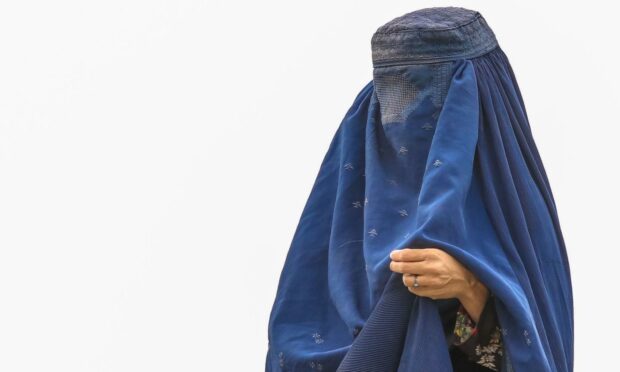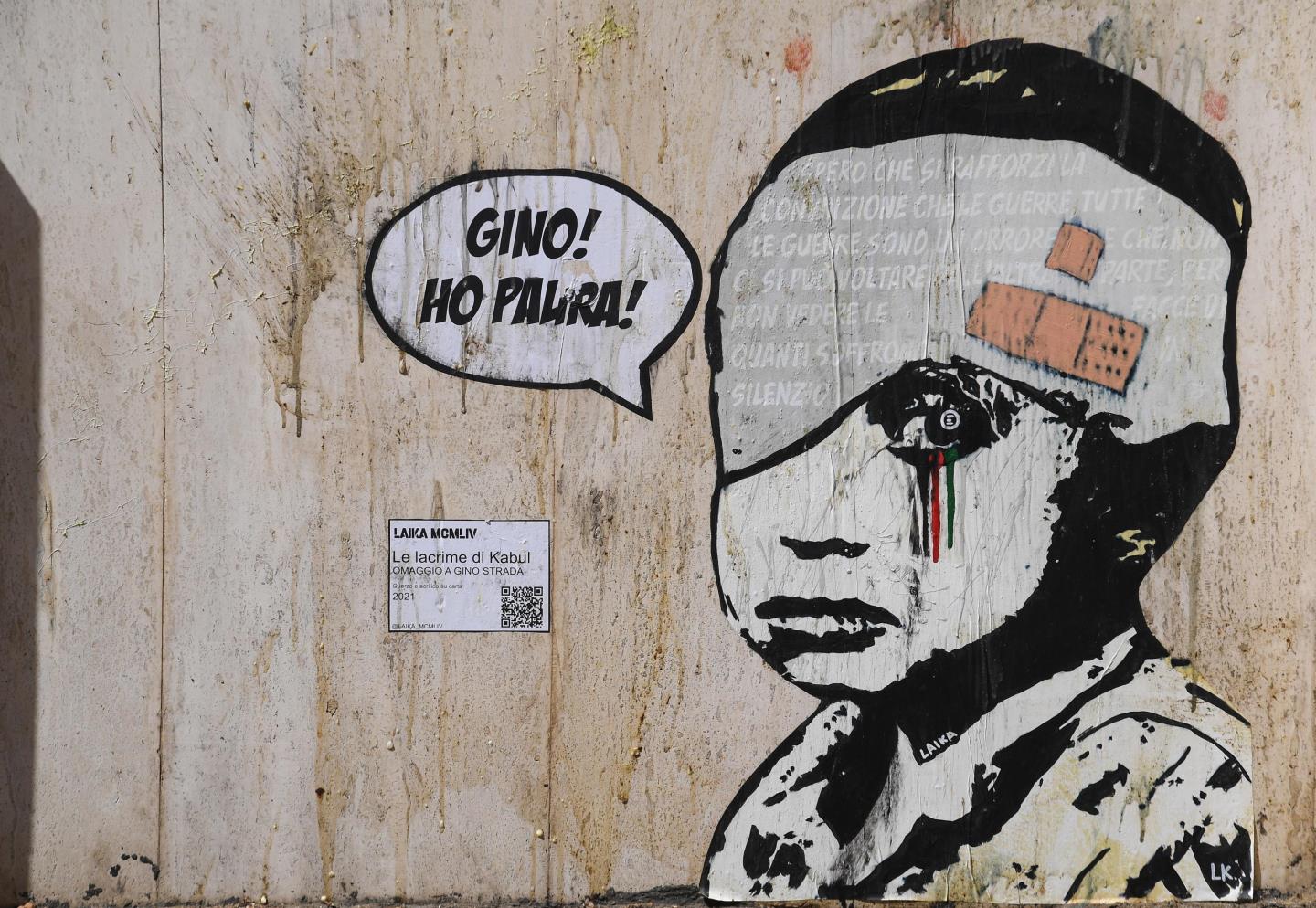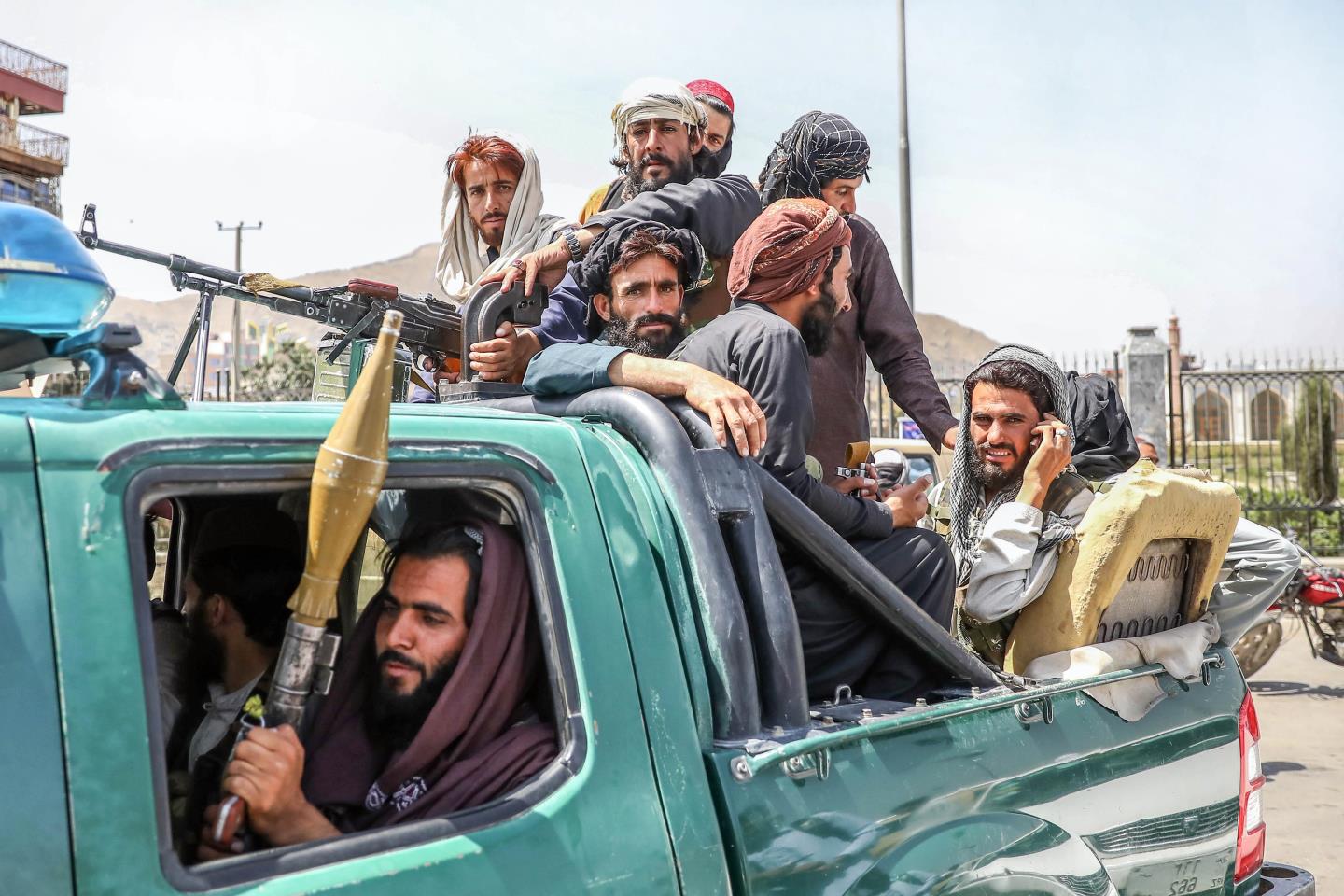The tragedy of Afghanistan is told most effectively in photographs.
On social media, a picture from 1970s Kabul is widely shared: three young women in block heels, above-the-knee skirts, and open-necked blouses with the comical long collars of the era are strolling along a tree-lined street, relaxed and smiling, perhaps on their way to university or work.
It could be a scene from any UK or US city. If those women have survived their country’s varied traumas of the past four decades they will now urgently be donning the restrictive, submissive garb demanded by the returning Taliban theocracy.
Images of models on shopfronts are already being whitewashed over. “As a woman, I feel like I am the victim of this political war that men started,” one student tells the Guardian. “I can no longer laugh out loud, I can no longer listen to my favourite songs, I can no longer meet my friends in our favourite cafe, I can no longer wear my favourite yellow dress or pink lipstick. And I can no longer go to my job or finish the university degree that I worked for years to achieve.”
Another iconic image: a Chinook helicopter hovers over the Afghan capital’s suddenly abandoned US embassy, with unavoidable echoes of the notorious rooftop evacuations in the final days of the Vietnam War. “This is manifestly not Saigon,” insists US Secretary of State Antony Blinken. The differences seem minimal.
Biden’s humiliation must be witnessed
Once again the West, so full of promises, good intentions and moral superiority, is proving itself an inconstant and treacherous friend. The bravery and sacrifice of its armed forces contrasts starkly with the self-serving calculations of its politicians.
Consider this: Afghanistan is being abandoned to a murderous, misogynistic, medieval regime so that a PR deadline can be met. President Biden wants bragging rights on next month’s 20th anniversary of 9/11.
Biden’s humiliation must be witnessed. Footage circulates of a press conference he gave only four weeks ago to announce the drawdown. Is a Taliban takeover inevitable, he is asked. “No, it is not.” Why? “Because… the Afghan troops have 300,000 well-equipped [personnel] – as well-equipped as any army in the world – and an air force against something like 75,000 Taliban.” It is pointed out that the intelligence community believes the government will collapse. “That is not true. They did not reach that conclusion… [Afghans] clearly have the capacity to sustain the government in place.”
Experts now expect the number of civilian casualties to soar as the Taliban imposes its brutal ideology on the country, and the rights of women to be savagely cut back
But erstwhile president Ashraf Ghani has already scarpered to neighbouring Uzbekistan and the Taliban have announced the rebirth of the Islamic Emirate of Afghanistan. Al-Qaeda, which has been hunkering down in Iran, will undoubtedly return. Osama bin Laden may be dead, but his homicidal movement lives.
The tragedy is told in data
This is what we are leaving behind, along with our tattered reputation. The isolationists and foreign-policy “realists” are issuing “I told you so”s and the usual lamentations about overreach. The cost of non-intervention is never priced in by these desiccated pessimists.
The tragedy is told in data, too. The number of US troops in the country had fallen from a height of 110,000 to just 4,000. Though America is estimated to have spent $778 billion in Afghanistan between 2001 and 2019, with Britain adding another $30 billion, the annual outlay has dropped heavily in recent years. From a grim maximum of nearly 500 US deaths in the country in 2010, there were nine in 2020.
Since the intervention, infant mortality has been cut by half, and 37% of teenage girls are today able to read. The number of children in school has increased from 0.9 million to 9.2 million. There has been a sevenfold rise in female university students. The number of women working in the public sector has gone from 51,200 in 2004 to nearly 87,000 by 2018, an increase of 69%; women police officers from 180 in 2005 to 3,560 by 2019; female judges from 5% of the total to 13%.
Yet again, those virtuous Western democracies have proved themselves unable to stick with it, have shown themselves willing to betray commitments and abandon the prospect of greater equality
Social and humanitarian improvement has been difficult, expensive and imperfect. It always is when you’re wrestling with embedded rules, powerful vested interest, and endemic corruption. But it was happening – just ask the women of Afghanistan. Experts now expect the number of civilian casualties to soar as the Taliban imposes its brutal ideology on the country, and the rights of women to be savagely cut back. No wonder Defence Secretary Ben Wallace, a former soldier, was in tears on the radio yesterday.
Too little, too late from the UK Government
You can practically hear the cackles from Beijing and Moscow. Yet again, those virtuous Western democracies have proved themselves unable to stick with it, have shown themselves willing to betray commitments and abandon the prospect of greater equality in a better world to the necessities of the domestic electoral cycle.
Parliament is being recalled to debate the retreat, but it is all too little, too late and, anyway, takes place in a country which has slashed its overseas aid budget, turned its back on European solidarity, and is run by a solipsistic chancer. Where the Home Office, currently in the possession of a small-minded hanger and flogger, seems likely to abandon to the slaughter many of those Afghan interpreters and aides who risked their lives helping the Allies for the past two decades.
Why on earth should we be trusted ever again? By what right do we claim moral leadership? Which of us could easily look a young Afghan girl in the eye today? There is only one appropriate emotion: shame.
Chris Deerin is a leading journalist and commentator who heads independent, non-party think tank Reform Scotland



